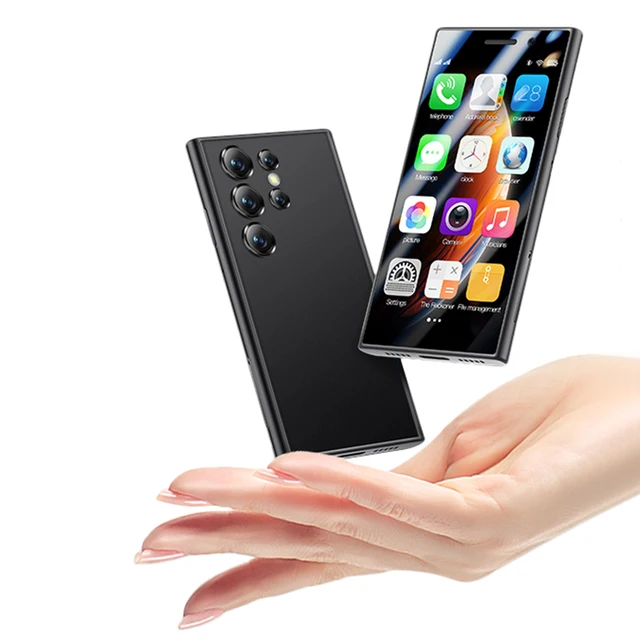Identifying the Causes of Dropped Calls
Experiencing dropped calls on your Android phone can be aggravating, especially if it occurs frequently. Identifying the root cause is essential to address the problem effectively. Below are some common reasons why your Android device may be dropping calls:
- Weak Signal Coverage: Lack of signal strength can lead to call disruptions. Mountains, buildings, and distance from cell towers can affect your signal.
- Network Congestion: Busy networks can drop calls. High user volume in your area overloads the network capacity.
- Handover Issues: Moving between cell towers during a call should be seamless. If it’s not, your call might drop.
- Faulty Hardware: A damaged antenna or network module in your phone can interrupt calls.
- Outdated Software: Phones need updates for optimum performance. Old software may struggle with call stability.
- Battery Problems: A low or malfunctioning battery may not sustain calls properly.
- SIM Card Issues: An old or damaged SIM card could also be the culprit behind dropped calls.
These factors serve as a checklist to help diagnose the problem. By pinpointing the exact cause, we can find the correct solution. In subsequent sections of the blog, we will explore ways to enhance signal strength and update devices to reduce the likelihood of call drops.

Improving Signal Strength for Better Call Quality
It’s crucial to have good signal strength for quality phone calls. Obstacles like buildings or hills can block signals. A weak signal can cause calls to drop. To prevent this, try moving to a place with fewer obstructions. This could mean going outside or standing near a window.
Stay close to cell towers for best reception. The further away you are, the weaker the signal. Try finding higher ground if you’re in a valley or surrounded by tall structures.
In urban areas, lots of users share the same towers. This can overload the system and result in dropped calls. To counter this, avoid making calls at peak hours when many people are on their phones.
Remember that weather conditions can also affect signal strength. Heavy rain, snow, or fog can interfere with your call quality. When the weather is bad, Wi-Fi calling can be a good alternative.
Keep your phone charged for the best signal reception. A low-battery phone might struggle to maintain a strong signal. Also, close unused apps running in the background. They can slow down your phone and weaken its ability to hold a call.
Lastly, consider using a signal booster if you consistently experience poor reception. They can amplify the signal in areas where it’s typically weak. This can be a great help in homes or offices with poor reception.

Updating Device and SIM Card for Call Stability
Keeping your Android phone up-to-date is vital for stable calls. Technology develops rapidly, and older devices may struggle to cope with newer network standards. Here’s what you can do to ensure your device and SIM card contribute to call stability:
- Upgrade your handset: New models have advanced hardware that works better with current networks.
- Check for updates: Regular updates improve software and fix bugs. Always install the latest version.
- Replace your SIM card: An outdated or damaged SIM card can cause issues. Get a newer SIM from your carrier.
- Clear cache periodically: This helps your phone run smoother, potentially affecting call performance.
- Shutdown unused apps: They can drain your phone’s resources and affect its functionality.
- Keep your battery healthy: A failing battery weakens phone performance. Replace it if needed.
- Reset network settings: This can solve persistent call drop issues.
By taking these steps, you not only enhance call stability but also ensure that your Android phone operates optimally in other areas.
Eliminating Phone and Software Glitches
In dealing with dropped calls on your Android phone, it’s critical to address phone and software glitches that could be causing interruptions. Here’s how you can eliminate these issues:
- Restart Your Phone: A simple reboot can clear temporary glitches and refresh your phone’s connection.
- Update Your Software: Install the latest software updates which often include fixes for call-related issues.
- Check for App Conflicts: Some apps might interfere with call functionality. Uninstall recent apps to see if call stability improves.
- Inspect Phone Hardware: Look out for potential damage to your phone’s antenna or other hardware components related to calling.
- Reset to Factory Settings: If persistent problems occur, consider backing up your data and performing a factory reset.
- Clean SIM card Slot: Dust or debris in the SIM card slot can cause connectivity issues. Clean it carefully.
- Safe Mode Diagnosis: Boot your phone in safe mode to identify if third-party apps are causing the drops.
By methodically checking for these glitches and applying the recommended solutions, you can minimize the chances of calls dropping due to phone or software issues. Keep your device running efficiently to maintain call reliability.

Utilizing Carrier-Specific Solutions to Prevent Call Drops
To minimize dropped calls on your Android phone, carrier-specific solutions can be very effective. Each mobile network provider may have customized settings and updates to help you maintain call continuity. Here are some practical steps to consider:
- Contact Customer Support: If problems persist, reach out to your carrier’s helpdesk. They might have specific advice or solutions for their service.
- Check for Carrier Updates: Occasionally, carriers release updates that improve connectivity. Ensure your phone has the latest carrier settings.
- Network Coverage Maps: Use your carrier’s online tools to check signal strength in your area. This will help you identify if poor coverage is a factor.
- Wi-Fi Calling: If your carrier supports it, enable Wi-Fi calling to bypass weak cellular signals.
- Carrier Troubleshooting Guides: Follow your mobile provider’s online troubleshooting steps for dropped calls.
- Carrier-Specific Apps: Download your carrier’s app for easy access to support and possible signal-boosting features.
- SIM Card Upgrade: Ask your carrier about the latest SIM card version. A new SIM may enhance call quality.
By employing these carrier-specific tips, you can address many of the common issues that lead to dropped calls on your Android phone.
Addressing Overlooked Issues in Android Phones
When your calls drop, sometimes the fix is in the details that easily go unnoticed. Here are key considerations to address the less obvious factors causing call drops on an Android phone:
- Check Date and Time Settings: Incorrect settings can interfere with network functions. Ensure your phone’s date and time are set correctly.
- Clean the Speaker and Microphone: Dust or debris in your phone’s speaker or microphone may affect call quality. Clean these components gently with a soft brush.
- Disable Battery Saver Mode: This mode can limit your phone’s performance. Turn it off during calls to prevent disruptions.
- Manage Call Settings: Explore call settings for features that might be causing drops, like ‘Stay on LTE’ which interrupts calls when the LTE signal is weak.
- Examine Case and Accessories: Some cases or accessories can block the phone’s signal. Remove them and test if call performance improves.
- Review Permissions for Recently Installed Apps: New apps may change settings that affect calling. Review their permissions and configure correctly.
- Ensure Proper SIM Card Placement: A loose SIM card can cause connection issues. Ensure it is securely placed in its tray.
- Check for Physical Damage: Drops or impacts can damage internal components. Inspect your phone for visible damage that may affect calls.
By addressing these often overlooked issues, you can decrease the likelihood of call drops and improve your overall phone experience on the Android platform.
Leveraging Third-Party Apps for Enhanced Calling
In the quest for uninterrupted calls, third-party apps can be a game-changer. Such apps often use internet protocols, which can offer a more stable connection than traditional cellular networks in certain situations. Here are some ways to harness their power for a better calling experience:
- Opt for Wi-Fi Calling: Apps like WhatsApp, Skype, and Viber let you place calls through Wi-Fi. This is helpful when cellular signal is weak.
- Use VoIP Services: Voice over Internet Protocol (VoIP) services, such as Google Voice, provide alternate ways to make calls using a data connection.
- Explore Video Calling: For face-to-face communication, try video calling apps. They also feature audio-only options if you prefer.
- Try Call-Forwarding Features: Some apps offer call-forwarding functions. This can redirect calls to an internet-based service when cellular service is poor.
- Investigate Quality Settings: Many apps allow you to adjust call quality preferences. Lowering the quality can improve call stability on slower connections.
Remember to update these apps regularly. Developers frequently release updates that improve functionality and address bugs. Also, using apps in areas with strong Wi-Fi can ensure better call quality.

General Maintenance Tips for Ongoing Call Reliability
Regular maintenance can prevent many common call drop issues on Android phones. Here are some helpful tips:
- Keep Your Phone Updated: Ensure your device runs the latest Android version and carrier settings. Updates often include fixes for call stability.
- Check Battery Health: A failing battery can affect call quality. Replace it if your phone often dies quickly or heats up during calls.
- Clean Your Phone: Dust and debris can block microphone and speaker parts. Gently clean them with a soft brush or cloth.
- Close Unnecessary Apps: Running too many apps can slow down your phone and impact call quality. Close apps you’re not using to free up resources.
- Manage Storage Space: Lack of storage can make your phone sluggish, impacting calls. Delete unused apps and files to maintain performance.
- Monitor App Permissions: Some apps may affect call functionality. Review permissions and deny access to unnecessary functions.
- Use Quality Accessories: Low-quality chargers or cases can interfere with your phone’s functionality. Choose accessories wisely to avoid issues.
- Reset Phone Periodically: A periodic reboot helps clear system caches and refresh connections. Restart your phone every few days.
- Avoid Extreme Temperatures: Don’t leave your phone in hot or cold environments. Extreme temperatures can damage internal components, affecting calls.

Following these general maintenance tips will help ensure that call drops are less frequent and that your Android phone remains reliable during important conversations.

